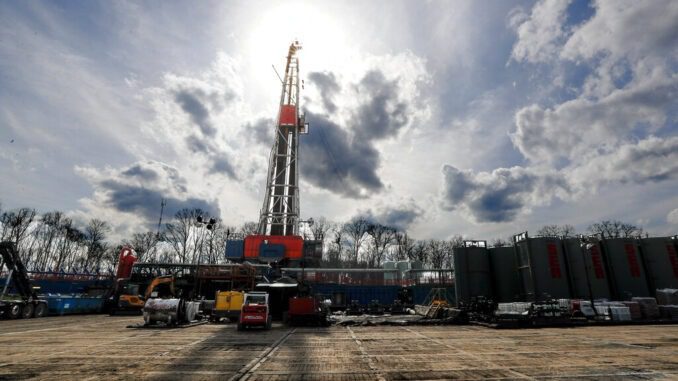
In the 1960s, I purchased a 75-acre plot for $8,000 that would eventually expand to our current 12,000-acre operation and home to corn, wheat, bean crops and more than 40,000 hogs.
When managing a farm of this size and trying to care for every crop and animal to the best of my ability, every single dollar counts. The mounting cost of everyday goods due to inflation has made it harder and harder for American farmers and small business owners to keep their businesses afloat. Rising energy costs just might be the final nail in the coffin as many economic sectors, especially agriculture, rely on a tremendous amount of energy.
That is why it is more important than ever to keep energy costs low and do all we can to avoid another energy price spike. Democratic leaders in Congress passed the Inflation Reduction Act with promises to reform America’s outdated and bureaucratic permitting process. As it stands, the process entails years of obstructive approvals and roadblocks. Crucial infrastructure projects that would improve our roads, bridges and energy infrastructure are wrapped up in red tape.
Streamlining project approvals would help farmers, small businesses and consumers, allowing for needed improvements in our infrastructure and helping to transport more energy to markets. This means fuel prices would drop as consumers gain access to more energy. The longer these projects take, the less energy supply the country has — which can translate to price surges when demand spikes. Lawmakers must be cautious of this dangerous dynamic as we approach colder weather this winter, a historically energy-intensive season.
Small business owners — and farm owners especially — know how energy costs can vastly impact whether you turn a profit, break even or dip into the red during a given month. Aside from permitting reform, Congress can take other action to ensure our energy security. Opening more federal lands for leasing and fast-tracking natural gas projects would further increase our supply of domestic energy.
This is a straightforward solution to stabilizing fuel prices and keeps America from depending on foreign energy imports. We have a wealth of natural energy beneath our feet. Responsibly tapping these resources would boost our economy and help cut consumer costs. We need Congress to do everything it can to keep energy and fuel costs low as businesses are just now beginning to recover from the past few years of the economic downturn, which harmed all hard-working Americans.
However, some Democrats on Capitol Hill have other ideas, calling for additional, punitive taxes that would stymie energy investments and increase prices for consumers. Those policies threaten the Tar Heel State’s more than 230,000 energy jobs and the energy industry’s $26 billion in tax contributions. Now is not the time for excessive and burdensome policies that hurt consumers and threaten price spikes. We must oppose “windfall profit” taxes.
Our path forward is clear: expand domestic energy production through permitting reform, open more federal lands to leasing and fast-track natural gas projects. At the same, our elected officials must oppose windfall profit taxes to avoid future energy price spikes that would only hurt consumers.
Expanding our domestic energy production is an investment in our overall economy. These policies guarantee that hardworking Americans have the resources to succeed and prosper without ceding our energy security to hostile foreign countries.
Marion Cox is the founder and CEO of Cox Brothers Farms in Monroe.
